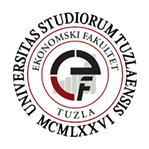Procedures for dealing with complaints and appeals
Anyone may inform the editors and/or Editorial Staff at any time of suspected unethical behaviour or any type of misconduct by giving the necessary information/evidence to start an investigation.
INVESTIGATION
- Editor-in-Chief will consult with the Editorial Board on decisions regarding the initiation of an investigation.
- During an investigation, any evidence should be treated as strictly confidential and only made available to those strictly involved in investigating.
- The accused will always be given the chance to respond to any charges made against them.
- If it is judged at the end of the investigation that misconduct has occurred, then it will be classified as either minor or serious.
MINOR MISCONDUCT
Minor misconduct will be dealt directly with those involved without involving any other parties, e.g.:
- Communicating to authors/reviewers whenever a minor issue involving misunderstanding or misapplication of academic standards has occurred.
- A warning letter to an author or reviewer regarding fairly minor misconduct.
MAJOR MISCONDUCT
Editor-in-Chief, in consultation with the Editorial Board, and, when appropriate, further consultation with a small group of experts should make any decision regarding the course of action to be taken using the evidence available. The possible outcomes are as follows (these can be used separately or jointly):
- Publication of a formal announcement or editorial describing the misconduct.
- Informing the author's (or reviewer's) head of department or employer of any misconduct by means of a formal letter.
- The formal, announced retraction of publications from the journal in accordance with the Retraction Policy (see below).
- A ban on submissions from an individual for a defined period.
- Referring a case to a professional organization or legal authority for further investigation and action.
When dealing with complaints and appeals, the editorial team will rely on the guidelines and recommendations provided by the Committee on Publication Ethics (COPE): https://publicationethics.org/guidance/Flowcharts.
RETRACTION POLICY
The infringement of the legal limitations of the publisher, copyright holder or author(s), the violation of of professional ethical codes and research misconduct, such as multiple submissions, duplicate or overlapping publication, bogus claims of authorship, plagiarism, fraudulent use of data and data fabrication, undisclosed use of tools based on large language models and generative AI, honest errors reported by the authors (for example, errors due to the mixing up of samples or use of a scientific tool or equipment that is found subsequently to be faulty), unethical research or any major misconduct require retraction of an article. Occasionally a retraction can be used to correct errors in submission or publication.
For any retracted article, the reason for retraction and who is instigating the retraction will be clearly stated in the Retraction notice. Standards for dealing with retractions have been developed by a number of library and scholarly bodies, and this practice has been adopted for article retraction by Economic Review: Journal of Economics and Business: in the electronic version of the retraction note, a link is made to the original article. In the electronic version of the original article, a link is made to the retraction note where it is clearly stated that the article has been retracted. The original article is retained unchanged, save for a watermark on the PDF indicating on each page that it is “retracted.”



